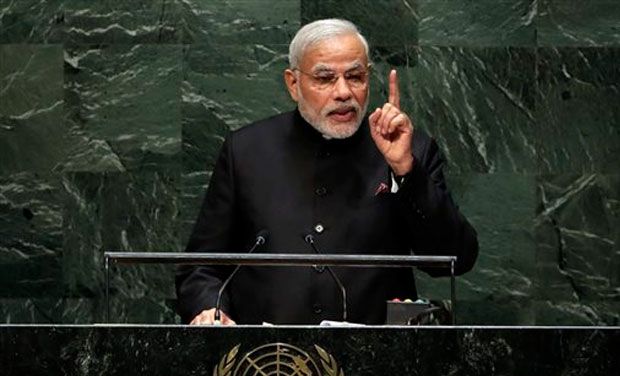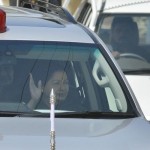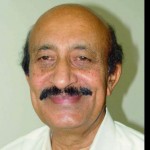
United Nations: Rebuffing Pakistan for raising the Kashmir issue at the UN, Prime Minister Narendra Modi on Saturday asserted that he was prepared to engage in a serious bilateral dialogue with it “without the shadow of terrorism” but asked it to create an “appropriate environment” for that.
Without making a direct reference to the strident speech of his Pakistani counterpart Nawaz Sharif yesterday in which he had insisted on a plebiscite in Kashmir, Modi made it clear that “raising issues in this forum is not the way to make progress towards resolving issues between our two countries”.
In his maiden address to the 193-member UN General Assembly, the Indian leader underlined that his government placed the highest priority on advancing friendship and cooperation with its neighbours, including Pakistan.
Speaking in Hindi, Modi said, “I am prepared to engage in a serious bilateral dialogue with Pakistan in a peaceful atmosphere, without the shadow of terrorism, to promote our friendship and cooperation.
Modi’s 35-minute address covered a number of subjects such as terrorism, including its resurgence in West Asia, reforms of the United Nations, including the Security Council, and the need for a more inclusive global development.
Talking about India’s neighbourhood, the Prime Minister said that India desired a peaceful and stable environment for its development. “A nation’s destiny is linked to its neighbourhood. That is why my government has placed the highest priority on advancing friendship and cooperation with her neighbours.”
He told Pakistan that instead of raising issues at the UN, “today we should be thinking about the victims of floods in Jammu and Kashmir. In India, we have organised massive flood relief operations and have also offered assistance for Pakistan-occupied Kashmir”.
“India is part of the developing world, but we are prepared to share our modest resources with those countries that need this assistance as much as we do,” he said.
Describing the present as “a time of great flux and change”, Modi said the world was witnessing tensions and turmoil on a scale rarely seen in recent history. Although there were no major wars “there is absence of real peace and uncertainty about the future”.
He referred to the Asia-Pacific region and said that it was “still concerned about maritime security that is fundamental to its future.”
While “extremism and fault lines” were growing in West Asia, Modi said, “our own region continues to face the destabilising threat of terrorism”.
Modi told the General Assembly that terrorism was taking “new shape and new name” and no country, big or small was free from its threat.
He went on to ask, “are we really making concerted international efforts to fight these forces, or are we still hobbled by our politics, our division, our discrimination between two countries, distinction between good and bad terrorists?”
Without naming Pakistan, the prime minister said even today “states allow terrorist sanctuaries on their territory or use terrorism as instruments of their policy”.
In an apparent reference to the ongoing conflict in Iraq and Syria, where a US-led coalition is attacking the Islamic State (IS) militants, he said that India welcomed efforts to combat terrorism’s resurgence in West Asia which was affecting countries near and far.
He pointedly emphasised, “this effort should involve the support of all countries in the region”.
Pressing for a concerted international effort to combat terrorism and extremism, the Indian leader urged the world body to adopt the Comprehensive Convention on International Terrorism.
Calling for reform of the United Nations, including the Security Council, whose membership India is aspiring for, Modi said the world body should be more democratic and participative.
“Institutions that reflect the imperatives of the 20th century won’t be effective in the 21st. It would face the risk of irrelevance and we will face the risk of continuing turbulence with no one capable of addressing it,” he said.
“We must reform the United Nations, including the Security Council, and make it more democratic and participative,” Modi said while urging the international community for changes in the 15-membered body by next year; when the UN celebrates its 70th anniversary. “Institutions that reflect the imperatives of 20th century won’t be effective in the 21st. It would face the risk of irrelevance; and we will face the risk of continuing turbulence with no one capable of addressing it,” the Prime Minister said.
As the United Nations observes its 70th anniversary next year, of which India was a founding member, it is appropriate that the much needed reforms of the UN Security Council is carried out by 2015, Modi said.
Asserting that no one country or group of countries can determine the course of this world, Modi said there has to be a genuine international partnership. This is not just a moral position, but a practical reality, he added.
“We need a genuine dialogue and engagement between countries. I say this from the conviction of the philosophical tradition that I come from. Our efforts must begin here – in the United Nations,” he said. In particular the UN Security Council, he added.
Modi urged the international community to put aside their differences and mount a concerted international effort to combat terrorism and extremism. “As a symbol of this effort, I urge you to adopt the Comprehensive Convention on International Terrorism,” he said.
“We should ensure that there would be peace, stability and order in the outer space and cyber space. We should work together to ensure that all countries observe international rules and norms,” he added.
In his address, Modi said globalization has created new poles of growth; new industries; and new source of employment.
At the same time, billions live on the edge of poverty and want; countries that are barely able to survive a global economic storm, he added.
“There has never been a time when it has seemed more possible than now to change this. Technology has made things possible; the cost of providing it has reduced. We no longer are totally dependent on bricks and mortars,” he said.
“If you think of the speed with which Facebook or Twitter has spread around the world, if you think of the speed with which cell phones have spread, then you must also believe that development and empowerment can spread with the same speed,” he said.
Each country must of course take its own national measures; each government must fulfil its responsibility to support growth and development, he noted. “At the same time, we also require a genuine international partnership,” he added.


